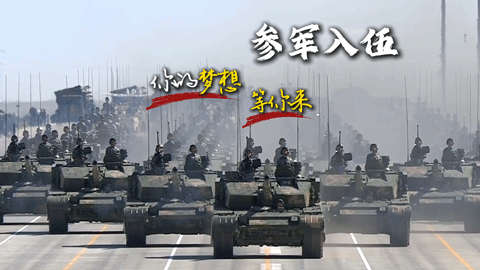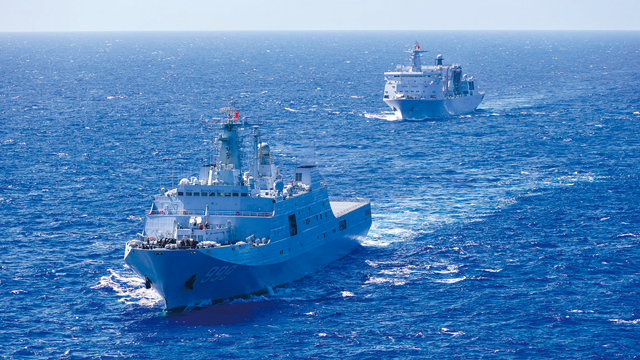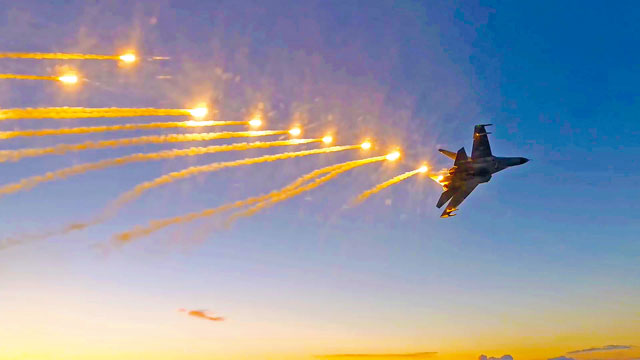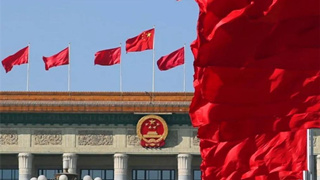By Qin Sheng

Illustration: Chen Xia/GT
Australia announced on Tuesday an additional spending of $7.2 billion to more than double its fleet of warships over the next 10 years, forming the largest navy in the country's history since World War II. According to an independent analysis led by retired US Navy Vice Admiral William Hilarides, Australia's current and planned surface combatant fleet is not appropriate for the strategic environment they face, noting that it is the oldest fleet the Navy has operated in its history. Obviously, the Australian government is filled with insecurity about the changing strategic environment, as well as negative assessments of the regional situation and geopolitics.
Compared to Australia's expenditure of approximately $300 billion on equipping nuclear-powered submarines through AUKUS, the increase in ships is just the tip of the iceberg in strengthening its military capabilities. From Australia's continuously increasing military spending and military development plans based on 10-year increments, it is evident that Australia is prepared for a long-term arms race.
However, this is not unique to the current government. In 2020, the Morrison government released the Defence Strategic Update and Force Structure Plan, which outline a significant increase in military spending. In 2021, Australia, the UK and the US announced that AUKUS, with the US and UK, are planning to equip Australia with nuclear-powered submarines, further highlighting Australia's ambitions to develop its military capabilities.
Although the Albanese government has kept its distance from the Morrison government in many areas, there has been no change in military development planning or perception of the strategic environment. In April 2022, the US, UK and Australia further escalated military cooperation by including hypersonic weapons and "electronic warfare capabilities" in AUKUS. In 2023, the Albanese government released its Defense Strategic Review 2023. The assessment aligns perfectly with the Morrison government's stance.
Why does the China-US competition make Australia, as a third party, feel insecure? Firstly, Australia deeply ties itself to the US, confusing national interests with alliance interests, for which it pays a huge price. Before the US viewed China as a competitor, Australia was deeply embedded in the economic processes of East Asia, reaping huge benefits from its economic cooperation with China.
However, after the strategic game between China and the US intensified, Canberra, disregarding the interests of its people and country, has become deeply tied to Washington, the culprit of the deterioration of its relations with Beijing. Although the Albanese administration has taken the initiative to seek to improve China-Australia relations, it is still closely following the US strategy of containing China in military development and is falling into the abyss of the arms race step by step.
Second, Australia's insecurity, a close neighbor of Southeast Asia, continues to rise as the US keeps inciting conflicts in Southeast Asia, leading to greater regional tensions. For a long time, the US has been creating tension in the South China Sea through "freedom of navigation", and instigating countries with territorial sea disputes with China to challenge its bottom line. Furthermore, the US has also provoked China through vicious incidents such as lawmakers' visits to the island of Taiwan, forcing China to implement countermeasures. All of those behaviors by Washington are exacerbating geopolitical tensions in the Western Pacific and increasing Australia's anxiety as a country within region.
Finally, the US has been using its influence to peddle a cold war mentality to its allies both in Europe and the Western Pacific. Canberra, as a US ally, has also been deeply influenced by Washington, believing that the risks of strategic miscalculation and confrontational conflict in the Asia-Pacific region are rising and that Australia is facing a more dangerous world. It was the cold war mentality that created Australia's sense of anxiety and negative perception of the regional situation. Today, this mentality is spreading like a contagious disease in the West, and the US is the source.
Australia is heading down a path of no return toward a major arms expansion. The country's military spending, expressed as a percentage of GDP, already exceeds that of most NATO countries. Yet, Canberra's concern about the regional situation has gone beyond the Cold War period to its highest level since World War II.
Pessimistic predictions of the regional situation and negative perceptions of strategic competition among great powers are the ideological roots of Australia's expansive defense strategy. However, such a strategy based on zero-sum thinking and the cold war mentality will fail to increase Australia's security. It will, however, further intensify regional tensions and even trigger an arms race among regional countries. Australia urgently needs to judge the development of the regional situation independently and recognize its regional role more rationally.
The author is a research fellow at the Center for Australia, New Zealand and South Pacific Studies, Chinese Academy of Social Sciences.




















